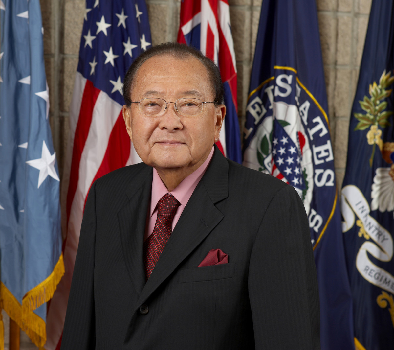FR: Ed Gabriel, MAC team
RE: Phone Call with Senator Daniel Inouye (D-HI) regarding FMF assistance to Morocco
We believe the Senate may mark up the Senate Foreign Ops bill as early as May 22 (our best information), the day before your meeting with Sen. Inouye. We are not optimistic about the bill and are concerned that Sen. Leahy will continue to try and condition FMF assistance to Morocco.
As Sen. Leahy is the Subcommittee Chairman, he is in charge of drafting the bill and it is very difficult to put any pressure on him. In fact, the only person in any real position to help keep the FMF restrictions out of the bill is Sen. Inouye – the Chairman of the full committee.
His phone number is 202-224-3934
Most of the time, the Chairman will not be available and will call back later in the day. It is very important that you persist to get a phone call conversation with him before COB Friday.
Background
Senator Daniel Inouye is a Democrat from Hawaii. He was first elected to the U.S. Senate in 1962 and is the most senior member of the US Senate. Sen. Inouye is decorated WW II War hero and has strong views on minority and human rights stemming from his own personal history and advocacy for justice for Japanese-Americans following WW II.
Senator Inouye is the Chairman of the Senate Committee on Appropriations, which oversees all discretionary spending legislation in the Senate. He is the only member of the Senate with the ability pressure Sen. Leahy into removing FMF restrictions in the first draft of the bill. As subcommittee Chairman, Sen. Leahy has a large amount of autonomy on producing the draft and only Sen. Inouye as full committee Chairman can exert any pressure on Sen. Leahy.
The Senator is very supportive of Morocco. In 2004, he sent his staffer Charlie Houy, on a Senate Appropriations Congressional Delegation to Morocco. That same year Senator Inouye voted in favor of the Free Trade Agreement. In 2010 he, along with a bipartisan majority of 54 US Senators, signed a letter to Secretary of State Hillary Clinton, urging her to make the resolution of the Western Sahara stalemate a US foreign policy priority in North Africa.
It is unlikely that Sen. Inouye will be aware of the FMF issue. He will need to be educated on why the FMF is being conditioned and how it affects the US-Morocco bilateral relationship.
While Sen. Inouye will likely be sympathetic to our concerns it will be difficult to convince him to overrule Sen. Leahy. That is a strategic decision for him and it will need to be balanced against his other priorities with Sen. Leahy. It is still important to brief him on this issue. This way, even if he decides not to help us early in the process, he will be aware of the issue and can help us when this bill goes into conference later in the year.
GOAL
To convince Sen. Inouye to protect Morocco’s FMF funding from any restrictions in the Senate Foreign Operation Bill.
Talking Points
Thank Sen. Inouye for his previous support for Morocco over the years and for signing the 54 signature Senate letter in 2010
Explain that last year, the final appropriations bill condition all of Morocco’s FMF assistance ($10 million) until the Department State produced a report on the positive steps Morocco is taking to improve human right conditions in the Western Sahara
Sen. Leahy has long requested an additional report on steps Morocco is taking to further protect human rights throughout Morocco and of course this is the prerogative of any Senator and regular business between branches of the American Government.
Morocco is, of course, supportive of any report requested by a Senator from the State Department, but strongly opposes having our military support delayed. Last year Morocco’s FMF funding became a part of this debate.
Morocco uses this FMF funding to purchase American military hardware, including $2.5 billion in F-16s and tanks produced by General Dynamic. Morocco views these purchases as strengthening the important economic and military relationship between our countries. These purchases also enhance the interoperability of our military forces during joint training sessions and foreign missions.
We are concerned that something like last year may be included again this year and would like to work with you to eliminate any FMF restrictions.
Morocco is strategic partner of the US in the region, on the UN Security Council, and as well as leader in the North Africa in the Arab Spring.
Morocco is leader on human rights in the region and has been used as an example by Sec. Clinton and other members of the Obama Administration.
These FMF restrictions severely and adversely affect the bilateral relationship because it directly affects the close military relationship and bilateral relationship. Morocco will take such restrictions as an affront to its long cooperative relationship with the United States.
We need your support on this issue.


Be the first to comment on "Phone Call with Senator Daniel Inouye regarding FMF assistance to Morocco"